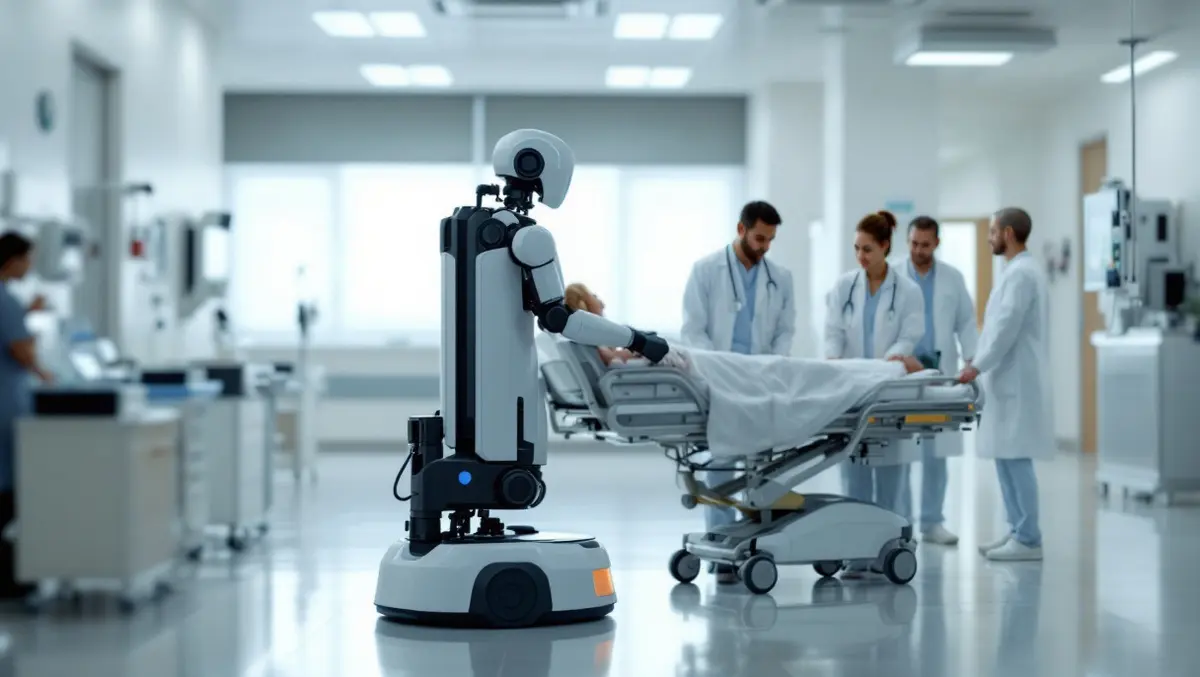
Robotic device aims to cut CAD $20bn in healthcare costs
Able Innovations is deploying its robotic patient transfer technology across five major hospitals in Canada.
The Toronto-based health technology company has partnered with leading healthcare institutions from Halifax to Vancouver to introduce its ALTA Platform, a device designed to support healthcare workers and patients by automating the patient transfer process.
The ALTA Platform is being evaluated at five prominent hospitals, including University Health Network, Bruyère Health in Ottawa, St. Joseph's Health Care London, Nova Scotia Health, and Vancouver Coastal Health. The device is manufactured in Canada and was developed with the support and collaboration of FedDev Ontario, NRC-IRAP, and the Ontario government.
Transferring patients within healthcare settings typically requires between two and eight frontline staff members, according to the company. Such tasks frequently result in injuries among healthcare workers and contribute to an estimated CAD $20 billion in annual healthcare costs across Canada. The ALTA Platform utilises automated technology driven by physical artificial intelligence (AI) to reduce the physical strain experienced by nurses, porters, and personal support workers (PSWs), while also aiming to enhance the patient experience.
Jayiesh Singh, Chief Executive Officer of Able Innovations, said, "Growing up with a mother who worked in frontline care, I witnessed her get injured while transferring residents and patients in and out of their beds. Since then, I've been seeking ways to reduce the burden while restoring dignity to patients. We are seeing a rise in demand for solutions that help our front-line staff, and we hope to grow our manufacturing footprint in Canada to address the growing need."
Support for the implementation of the ALTA Platform at Bruyère Health in Ottawa and St. Joseph's Health Care London has come from organisations including AGE-WELL, OBIO, and the Centre for Aging + Brain Health Innovation (CABHI). The CAN Health Network has coordinated evaluations of the device in a "triple-edge" project involving the University Health Network, Vancouver Coastal Health, and Nova Scotia Health.
Dr. Dante Morra, Founder and Chair of CAN Health Network, commented, "We are excited to support made-in-Canada solutions to address the most pressing needs facing our health care system."
Healthcare professionals are highlighting the potential impact of the ALTA Platform on workflow and staff efficiency. Dr. Gaurav Puri, Board Member at Able Innovations and Chief of Emergency Medicine at Southlake Regional Hospital, said, "Transferring patients laterally is the most labour-intensive task in healthcare. With greater demand for healthcare, and increasing frontline shortages, I see great potential in ALTA Platform's ability to allow facilities to do more with less."
Nicholas Lamothe, a porter at Bruyère Health, described his experience with the device: "I'm finding the patient transfer process with ALTA to be a lot easier and less physically demanding compared to manual transfers such as ceiling lifts. As a single-operator device, it shows promise in increasing hospital workflow efficiency by reducing the need for multiple staff during transfers. Oftentimes, trying to find additional staff to assist can be difficult."
The ALTA Platform is being positioned as a response to workforce challenges in the healthcare sector, focusing on reducing injuries among frontline staff, increasing workflow efficiency, and maintaining patient dignity during transfers. The company also aims to expand deployment of the ALTA Platform in North America and continue developing technology to reduce burdens on healthcare professionals.


